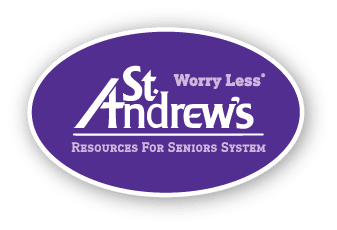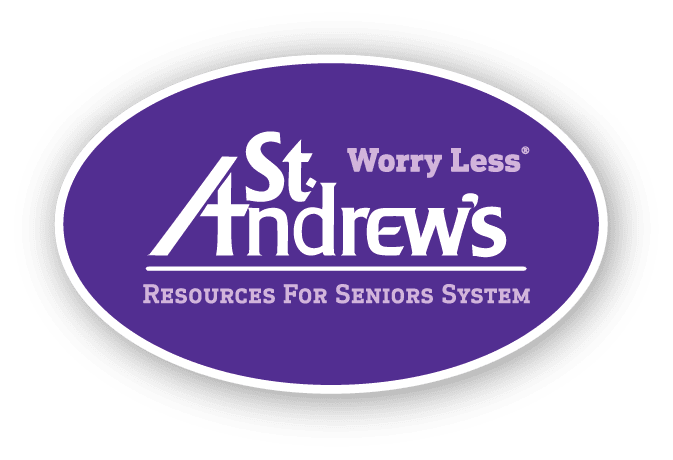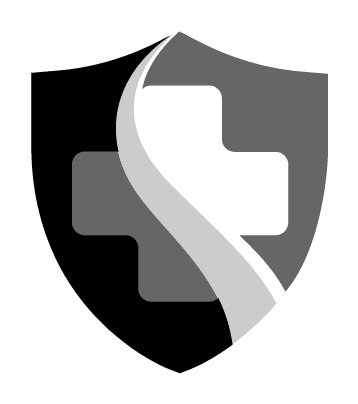St. Andrew’s
Geriatric Care Management Services
We accept private pay, Medicaid, and Circle of Care (low income). Rest assured we train and screen our employees to keep them and those they serve safe in their homes—wherever their home may be.
Help is just a phone call away!
(314) 726-5766

Who We Are
Senior Solutions is a leading eldercare provider in the St. Louis Metropolitan Area with a national network to address the needs and wants of seniors. Senior Solutions’ excellent reputation for its compassion for the elderly and for their family caregivers is well earned.
Our Vision: A society where all elders are respected, productive, secure, and fulfilled.
Our Purpose: To enrich the lives of older adults, ease the stress of their adult children, and enable them to remain safely and independently in their place of choice.
Our Mission: To enable elders and their caregivers through choices and options to Worry Less®.
What We Do
Senior Solutions provides seniors and their family caregivers long-term care coordination services and in-home care options to address the issues of aging. With decades of experience, Senior Solutions has the knowledge to empower elders retain their dignity and receive the respect they deserve.
Services for Seniors
Most wish to continue living in their own home. Sometimes, though, this can become a concern for safety in day-to-day activities such as climbing stairs, laundry, and other tasks. This is where we can help.
Senior Solutions offers lifestyle options that enhance health, independence, safety and minimize concern through a comprehensive, customizable array of support, nursing, and specialty services.
- Supportive services from an experienced care manager
- Nursing services from registered nurses
- Specialty senior care services assisting family caregivers and meeting the in-home care needs of aging parents through referrals and our well-established provider network
- Gift certificates are available for senior services
Services for Caregivers
The sooner we as primary caregivers ask for help for our aging parents, the sooner others will be able to lend a helping hand and help us maintain a healthy and balanced life of our own.
- Professional caregiving services, including senior care planning, care coordination, and advocacy
- Supportive services rendered by credentialed care managers and health care providers
Terms to Know
Plenty of official terms describe complex issues in the field of gerontology. Below is a list of common terms used in the field that can help you better understand what services are available to you and your loved one.
Activities of Daily Living – Those activities necessary to maintain independent living, such as feeding, dressing, toileting, and bathing.
Adult Day Care – Adult day care offers socialization during the day that includes activities, field trips, and meals. Many centers provide transportation to and from the center. This is an excellent and affordable way to provide loved ones with quality care, while giving caregivers time away.
Advanced Directives – Allows you to express wishes in advance to let physicians and other health care providers know what medical treatments are acceptable in the event you are unable to communicate your wishes.
Assisted Living – A living arrangement in which people with special needs, especially seniors with disabilities, reside in a facility that provides help with everyday tasks such as bathing, dressing, and taking medication. This is often referred to as a Resident Care Facility (RCF I or II) or an Assisted Living Facility.
At-Home Care Services – Assistance available to older adults who reside in a variety of living arrangements designed to help with the activities of daily life. Such services range from assistance with bathing and dressing to home cleaning, laundry and meal preparation. Some may also escort a person to medical appointments and assist with medication management and more.
Community-Based Services – Cost effective, quality care or services, in the least restrictive environment, that enables people to stay within their own home and community; that enhances quality of life; and supports individuals chosen lifestyle.
Dementia – The loss of intellectual functions (such as memory deficit or confusion) that interfere with daily living. There are many causes for dementia and some of these may be reversible such as drug reactions and nutritional deficiencies. Other causes of dementia are not reversible such as Alzheimer’s disease which is the most common type of dementia. To accurately determine the cause of dementia and provide optimal treatment, the older person needs a thorough geriatric assessment performed by a physician with input from family members.
Durable Medical Equipment – An item that can withstand repeated use, is used for medical purposes, and for an illness or injury in the home. These include walkers, shower curtains, shower chairs and raised toilet seats.
Durable Power of Attorney – Gives power to another to make legal or financial decisions such as handling investments, paying bills, contracting for nursing services and/or other living arrangements or care. The powers can be narrow or broad. To make this legally binding you should seek the advice of an attorney.
Durable Power of Attorney for Health Care – Gives power to another to make medical and other healthcare decisions if you are incapacitated.
Eldercare – A business industry that provides services or products that directly or indirectly impacts the lives of the older adult population.
Geriatric Assessment – Many older people experience multiple medical problems, frequent falls, memory and functional problems. Evaluations are needed to determine the patient’s strengths and problems, so that resources can be identified and used to promote as much independence, safety, and lifestyle satisfaction as possible. A thorough care plan is provided upon completion of the assessment.
Home Health Aide – Provides assistance with personal care such as bathing, dressing, toileting, walking, etc. These services are generally not covered by insurance.
Homemaker Services – Provides assistance with light housekeeping, meal planning and preparation, laundry, eliminating safety hazards, accompanying people to appointments, running errands. and grocery shopping. These services are generally not covered by insurance.
Hospice Care – For those who have a terminal illness and require 24-hour care, hospice addresses the medical, emotional and spiritual needs of both the patient and family.
Independent Living – A living arrangement that maximizes independence and self-determination through a “community” environment which allows one to be on their own while still having a network of support nearby.
Living Will/Health Care Directive – A document in which a person states his/her wishes regarding medical treatment. In Missouri, these documents become effective when the individual is incapacitated.
Medicaid – A government program, which provides certain health and long-term care services for low-income people. The person must financially qualify based on monthly income and assets. This program then allows the person to receive medical treatment both in and out of hospitals.
Medicare – A federal health insurance plan. It covers a portion of your hospital and doctor bills. When you apply for Social Security at full retirement age, you’re automatically enrolled in Medicare Part A (free hospital insurance). You may choose to sign up for Medicare Part B (medical insurance). A monthly premium for Part B will be deducted from your benefit check unless low income entitles you to Qualified Medicare Beneficiary aid.
Residential Care Facility I – Provides 24-hour care, shelter and protective oversight which may include the storage and distribution of medications during a short-term illness or recuperation.
Residential Care Facility II – Provides additional services, such as supervision of diets, assistance with personal care, housekeeping, social, and recreational programs and care during a short-term illness or recuperation and supervision of health care under the direction of a licensed physician. This type of facility is designed for the semi-independent resident able to walk alone or with the help of a cane, walker or crutch.
Respite Care – Short-term stay in a nursing facility to permit the family/caregiver some rest. Sometimes, this time away from home allows the care recipient an opportunity to socialize, participate in mentally stimulating recreational activities and make new friends
Skilled Care – Care needed by a registered nurse such as injections, medication administration, etc., or requires the skilled services of occupational and physical therapists, speech pathologists, and/or social workers. Generally, skilled care is covered through Medicare, Medicaid, and other insurance policies.
Skilled Nursing – An extended care facility, which provides skilled nursing care to long-term care residents or short-term rehabilitation services for a transition from surgery and illness to full health. It is more commonly known as a nursing home.
Get In Touch
Are You A Caregiver?
Need Assistance?





